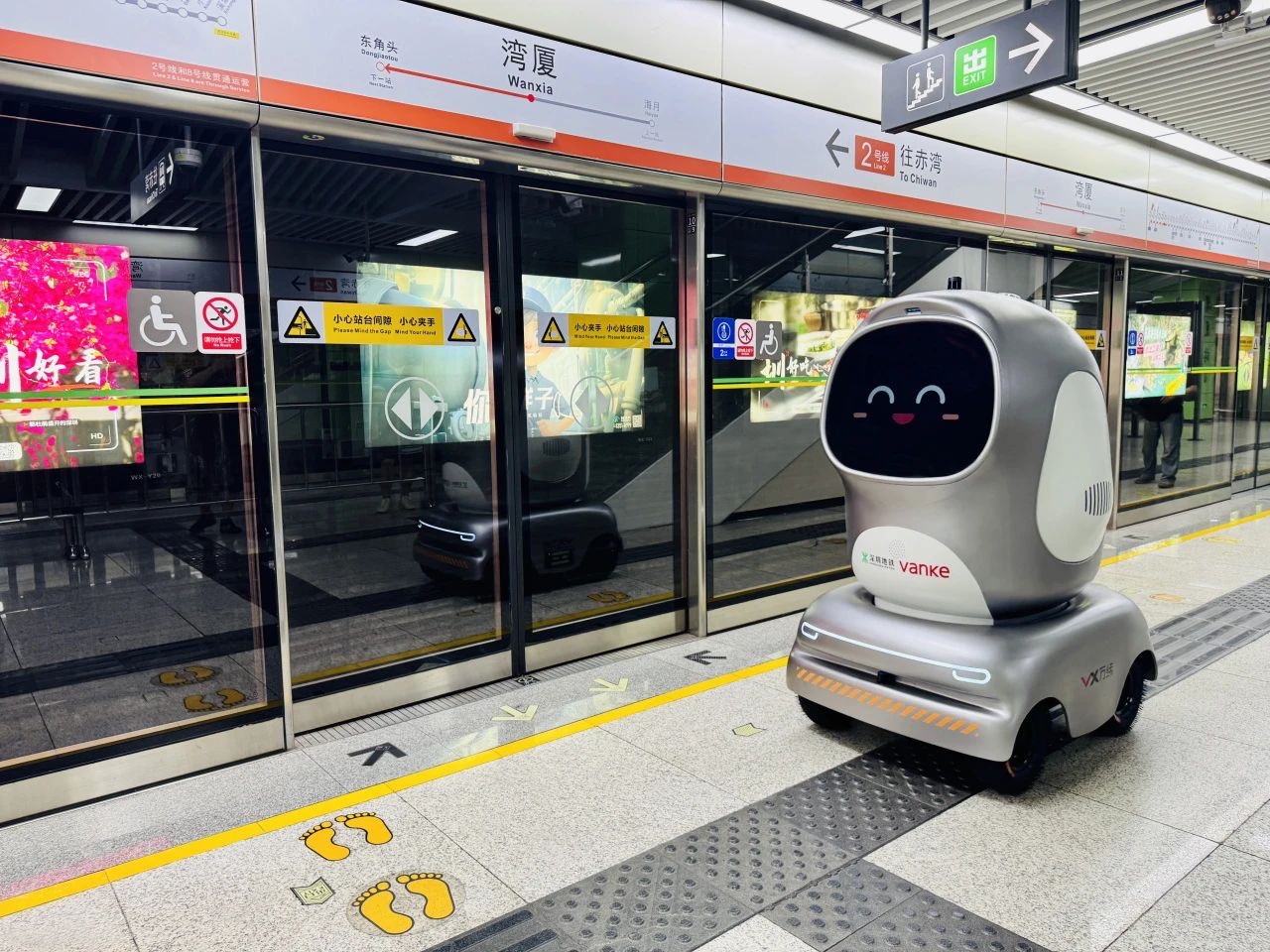
A robot independently riding the metro to deliver goods became a reality in Shenzhen, Guangdong province, this week, marking the world's first autonomous subway-based delivery service.
On Monday, a cartoon-themed robot successfully navigated Shenzhen Metro Line 2, boarding a train unassisted to deliver goods to 7-Eleven stores located in metro stations without human assistance.
The trial run is part of a joint project between Shenzhen Metro Group and VX Logistics, a subsidiary of Vanke Group, a real estate and property management company, aiming to integrate rail transit with robotic logistics. Using AI-powered scheduling systems and multi-sensor navigation, the robots can plan optimal delivery routes, avoid pedestrians and independently manage train boarding and station navigation.
READ MORE: Media tour continues to shine a light on Shenzhen’s innovation efforts
The project is in the testing phase and will be continuously adjusted based on operational feedback, according to the logistics company.
"In the past, stores inside metro stations mainly relied on ground transportation for replenishment, often facing problems such as congestion during peak hours and difficulties in parking," said Li Yanyan, store manager of the 7-Eleven at Wanxia Station. "If robot deliveries could be fully implemented, it would greatly help reduce delivery costs and wasted time."
As Shenzhen's metro network expands, the demand for retail services within the system has increased sharply, Li said.
Currently, 7-Eleven operates more than 100 stores in the Shenzhen metro station network, serving about 9 million commuters daily. However, traditional delivery methods are facing efficiency bottlenecks, particularly during peak hours when delivery vehicles struggle to access metro station areas, Li said.
Deploying around 41 of the robots would meet the peak-hour delivery needs of all 7-Eleven stores in the Shenzhen metro system, according to the logistics company.
The city views the pilot as part of its broader push toward intelligent urban logistics. Shenzhen has released a 2025-2027 action plan to promote "embodied intelligent robots", designating the entire city as a testing ground for smart technologies.
"Upon further expansion in the future, the project will enhance off-peak capacity utilization of the metro system, ease road traffic pressure and drive urban logistics toward intelligent and green development," said Hou Shangjie, head of automation at VX Logistics.
The delivery robot integrates AI scheduling algorithms, mechanical chassis and other hardware and software technologies, according to Hou.
ALSO READ: GBA robot firms ramp up mass production, eye global growth
The intelligent scheduling system serves as the brain of the operation, allowing robots to plan routes based on daily order volumes at different stores, specific store locations, delivery time requirements, and metro capacity.
"Based on the system, the project can achieve optimal path planning for multiple robots serving multiple stores," Hou said.
Technologies of the delivery robots will undergo continuous optimization and iteration based on performance data, Hou said.
Already a global leader in robotics, with more than 1,600 companies and major deployments in factories, hospitals and public safety, Shenzhen aims to pioneer smart infrastructure and redefine how cities integrate commerce, transportation and automation.
Contact the writer at qiuquanlin@chinadaily.com.cn


